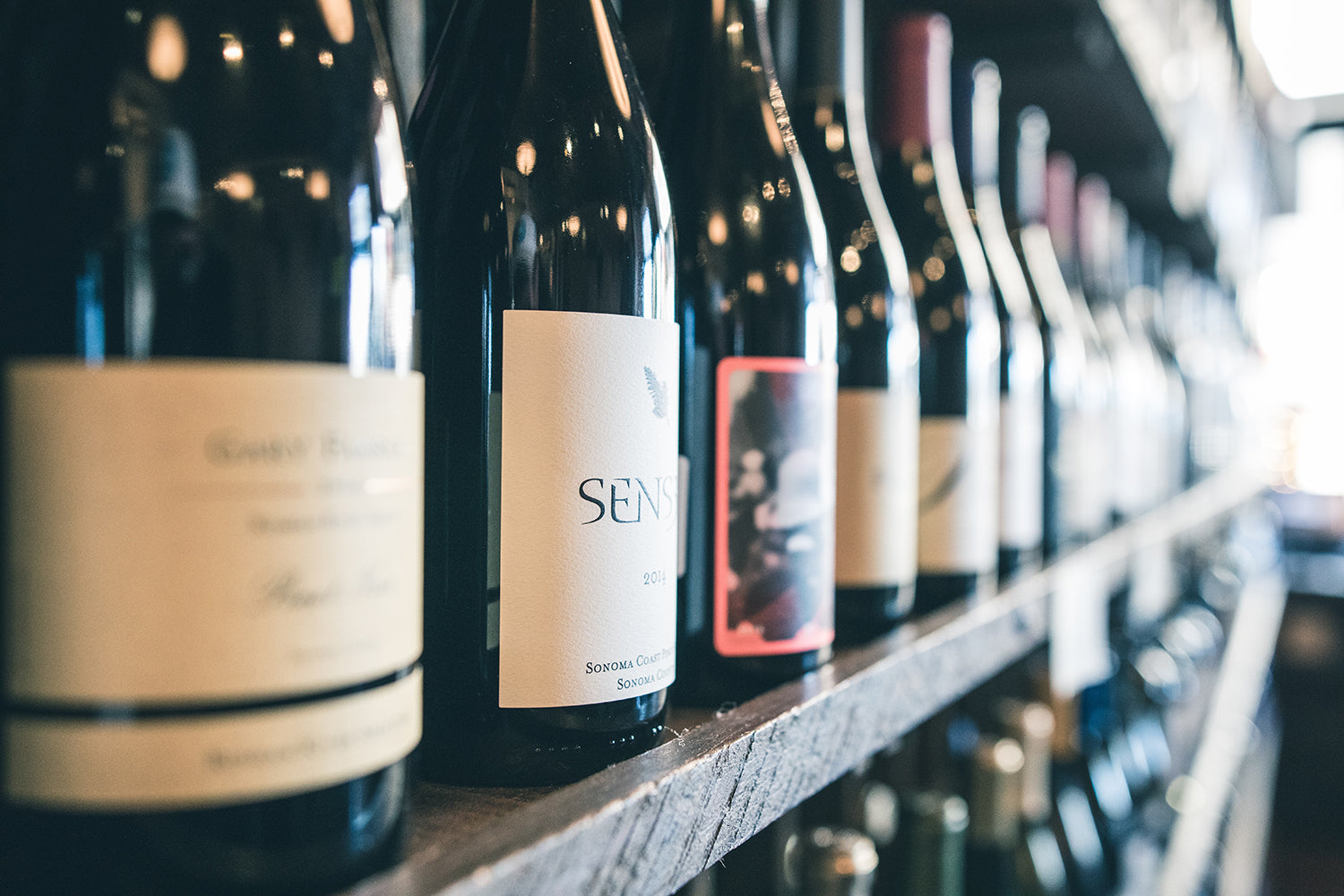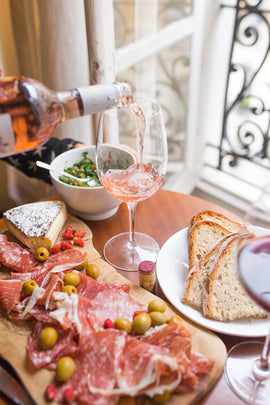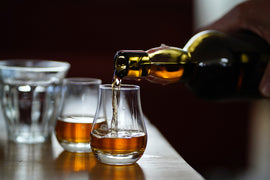Italian Wine Club ~ La Dolce Vite
Calabria | September 2018
Where the Italian boot dips its toe into the Tyrrhenian and Ionian seas is Calabria. A region of many contrasts, both geographical and cultural.
Here was part of Magna Graecia, where philosophers of ancient Greece opened their schools. Crotone, Sybaris, Locri were some of the many towns that saw the presence of Pythagoras, Aeschylus, Parmenides, just to mention some of the most influential thinkers in the history of philosophy.
Plenty of archeological sites are witnesses to this enduring past.
Today, Calabria is a region that embodies the many contradictions of the south Italian peninsula. The rich baggage of history, culture, art along with a unique landscape that is somewhat suffocated by a violent subculture of criminal behavior perpetrated by one of the most dangerous outlaw enterprises, the ‘ndrangheta. This organization has not only corrupted the local social fabric but has infiltrated the economy and financial worlds of cities like Milan and others in northern Italy, as well as in other countries like Germany.
To combat this disruptive influence, new generations of Calabrians are investing in what represents the positive aspect of their region. Agriculture has been for centuries the main form of sustenance for the local people. After suffering a constant and drastic decline in the last century due to deficient agrarian politics that forced most of the working class to emigrate or to search for work up north, we are seeing today young forces that want to invest in the territory.
Hills and mountains occupy about 90% of Calabria’s geography, leaving the rest to flat land.
A breathtaking coastline wraps the Tyrrhenian side of the region on the west. The east seaside mellows down offering long stretches of sandy beaches. Being surrounded by sea on the east, south and west, the only land border is to the north with Basilicata. There are five provinces: Cosenza, Crotone, Catanzaro (regional capital), Vibo Valentia and Reggio Calabria.
Elio Longobardi, Italian Wine Specialist
PlumpJack Wine & Spirits – Noe Valley
L’Acino, Chora Bianco, Calabria IGP 2016
Founded in 2006 by Antonello Canonico, Dino Briglio and Emilio Di Ciann (all natives of the mountain town of San Marco Argentano, in the province of Cosenza), L'Acino is a communal effort to express the oft-forgotten possibilities of Calabrian terroir. When the project began, the three friends were working full-time in unrelated fields: Antonello was a film director, Dino a historian and Emilio a lawyer. Though they had no viticultural or winemaking experience, their love of wine was enough to start an estate, and the trio's taste for vini naturali meant focusing their attention on organic viticulture and minimal intervention winemaking.
After long search they found a hectare of land right near the border of the national park of Pollino, the largest natural park in Italy. The grape that grow there was this ancient white varietal called Mantonico, which wines are characterized by strong acidity and tannins. This grape grows only on that specific area of Calabria. L’Acino has chosen to dedicate their effort on saving and growing indigenous varietals. Beside Mantonico they make grown Guernaccia Bianca, Pecorello, Greco Bianco and red varietals like Magliocco Canino and Guernaccia Nera.
Chora Bianco is made almost all from Mantonico with a little proportion of the other white grapes.
The vines are growing on thick sandy soil layered by a rocky substratum, forcing the vines to struggle for nutrients. This gives elegance and structure to the wine. After the harvest fermentation occurs on the lees in stainless steel tanks until next spring when the wine is bottled without filtration.
The color in the glass is light gold with green reflections. The olfactory analysis brings notes of white pepper and yellow wild flowers. The taste presents a fresh acidity, supported by a saline minerality.
A wine for midday aperitif as well for light fares like marinated anchovies or caprese salad.
Malaspina, Patros Pietro, Rosso Calabria IGT 2013
We ready visited Malaspina on our previous enologist trip to Calabria. I like this small family owned estate sited at the very bottom of the region. Melito Porto Salvo (Reggio Calabria) is the south most municipality in Italy. Since 1967, when Consolato Malaspina acquired this property and planted the vines of grapes that represented the spectrum of Calabrian enology (Greco Bianco, Magliocco, Gaglioppo, Nocera and Calabrese Nero), he had in mind to pursuit a passion not just a job.
Today Consolato can relay on the same spirit from his four daughters that are supporting him in the vineyard as well in the cellar. Domenica, Caterina, Irene and Patrizia are carrying the torch with unusual strength and passion.
The vineyards are on the hilltops about 600 above sea level. The Ionian Sea is so close from there that you can breathe the salt air as you can see the eastern side of the Sicilian coast on the horizon just few miles away. On that stretch of sea, between Calabria and Sicilia, is where the legend says the sirens tempted Ulysses and he survived the attack of the monsters Scylla and Charybdis.
Patros Pietro is a wine dedicated to Consolato’s father Pietro. Made it by 100% Magliocco grapes.
The harvest is done manually at the beginning of October. The fermentation is done in stainless steel tank and maceration for 12 days. The wine is then moved in French barrels were ages for 8 months.
The color is intense red with purple tones. The aromatics remind you of blackberries and blueberries with a touch of oriental spices. Ripe, juicy dark fruit supported by a warm earthy frame.
Wine that serves well rich meat preparations such millelefoglie di maiale,caciocavallo e guanciale (see recipe below), aged cheeses and stuffed pastas.
Millefoglie di maiale, caciocavallo e guanciale con salsa alla canella
(Pork loin, caciocavallo cheese and pork jowl slices pie with cinnamon sauce)
This dish is made by baking pork loin, cheese and pork jowl all sliced and builds up in layers. Served with a stock reduction sauce aromatized with cinnamon.
Ingredients (serves 4)
- 1kg pork loin
- 8 slices caciocavallo cheese (can be substitute with aged provolone)
- 16 slices pork jowl or pancetta
- Salt & pepper
- 1kg beef bones
- 1 stalk of celery
- 1 sprigs of parsley
- 2 bay laurel leave
- 1 carrot
- 1 leek
- 2 garlic cloves
- 1 Tbsp. olive oil
- 2-liter water
- Set beef bones in a baking pan and roast them for 10 min at 400F, remove any excess of fat and set aside
- In stock pan pour the olive oil, add all the vegetable, bones and the water and let cook for 3 hours at medium heat, skimming any foam that forms on the surface. Let cool for half hour
- Strain the stock with a fine mesh colander in a small pot, set back on the stove, add the cinnamon and cook to reduce to 3 cups of stock
- While the stock is reducing, heat the oven to 350F cook the pork tenderloin for 30 min or until the meat thermometer reads 140F in the center of the loin. Let it cool down and cut into ½ inch thick slices
Now let’s assemble our pie
- Using a rimmed baking pan, as the one used for lasagna, start with 1 slice of pork loin, followed by 1 slice of cheese, then slice of pork jowl, 1 more slice of loin and 1 more slice of pork jowl to finish. Use a toothpick to keep everything in place
- Repeat the process until you have 8 pies
- Put the baking pan in the oven at 350F for 10 min
- Serve two pies in each plate with a generous spoonful of warm cinnamon sauce
Calabrese proverb:
U vinu 'a vita allonga, ll'acqua accurcia ll'anni
(wine makes life longer, water makes life shorter)





